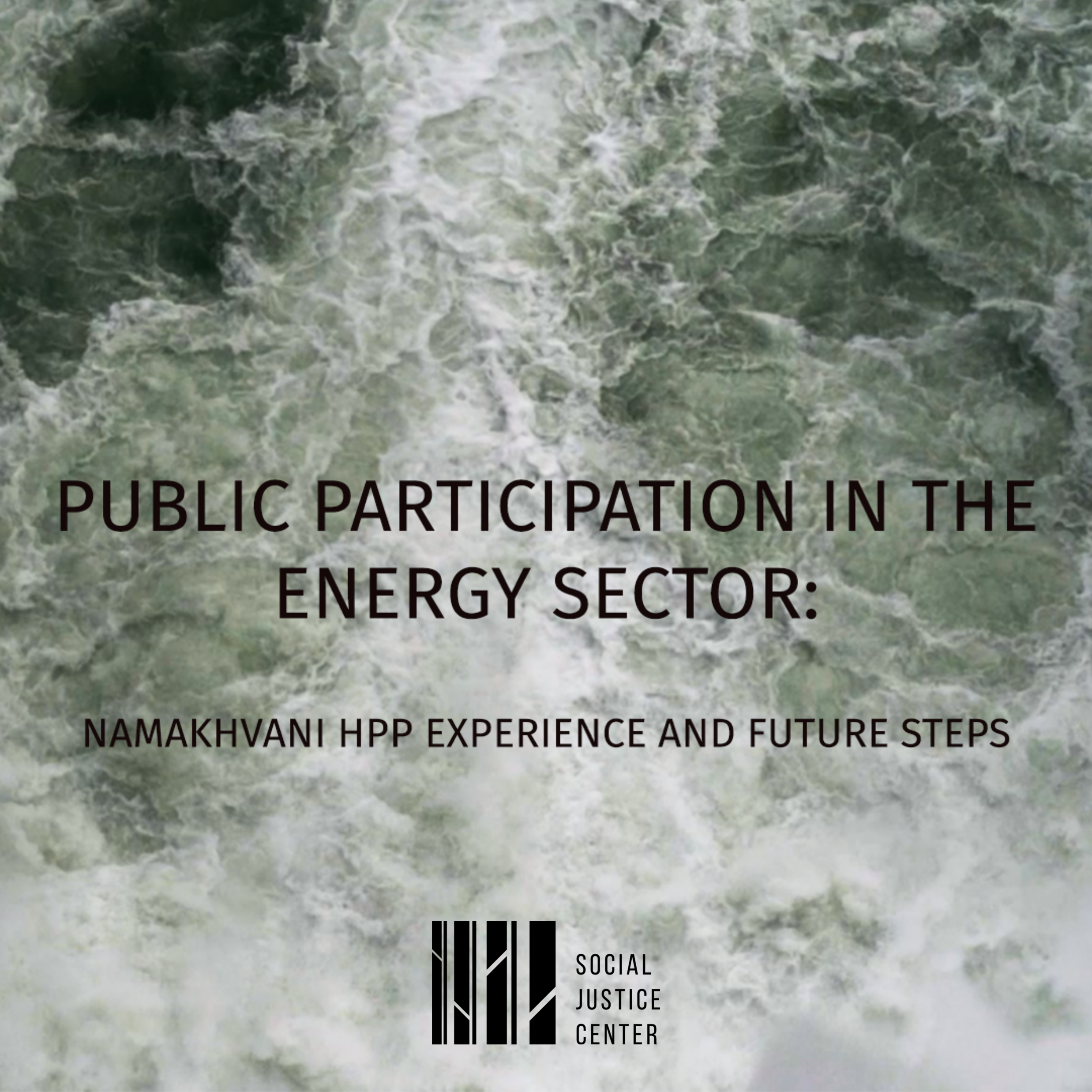საერთო ცხელი ხაზი +995 577 07 05 63


The case of the Namakhvani HPP has demonstrated that the reinvigoration of the energy sector requires more transparency and greater, earlier, more informed and more active public participation.
Introduction
Despite significant improvements in legislation related to environmental protection and management of natural resources in recent years, it is evident that energy projects are met with mass opposition by local communities as well as professional circles. The most striking example of such resistance has been the lengthy and large-scale protest against Namakhvani, a HPP cascade planned in the Rioni Valley. This protest made clear that the project had been planned without appropriate public participation. There was no public consensus regarding the development of the project, either in the Rioni Valley itself or among the concerned civil and professional organizations beyond the valley.
Further, inquiries into the project have revealed numerous institutional and legislative flaws[1] – problems and failures that need to be addressed for the invigoration of the energy sector to become possible. The Namakhvani HPP case has created an opportunity for a salient exposure of these systemic problems and their incorporation into the political agenda. Refining the procedures related to drafting, development and assessment of energy projects and promoting the transparency of these processes through enhancing access to public information are crucial for ensuring that events similar to those that took place in relation to Namakhvani in 2019-2021 will not occur again, as well as for the creation of an equitable energy policy. Part of these reforms fall within the responsibility of individual state agencies, including the Ministry of Economy and Sustainable Development and the Ministry of Environmental Protection and Agriculture, while others require coordination between multiple government institutions.
Since after the investing company withdrew from the project, its future has been unclear. And with the end of the protest against the HPP, times has come for the reassessment and reevaluation of this two year-long process. What did we learn about the Georgian energy sector in light of the events related to the Namakhvani HPP? The necessity of what kinds of reforms was brought to the fore and who is responsible for carrying them out? This policy paper will compile and provide brief recommendations regarding the systemic challenges addressing which would assist the development of a more sustainable, equitable and democratic energy sector.
[1] Violations, Inconsistencies and Unsubstantiated Concessions: A Brief History of Namakhvani HPP Project. Social Justice Center, 2021
The website accessibility instruction